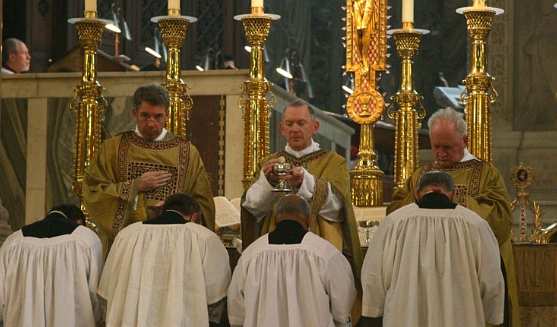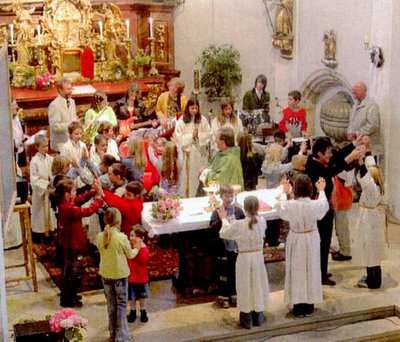Diskusjonen om evolusjon eller skapelse fortsetter
Vårt Land skriver i dag at «Det europeiske råd (som møtes fire ganger årlig, og dets oppgave er å fastsette kursen for Den europeiske union) advarte parlamentarikerne som sitter i Europarådet, mot konsekvensene av å ikke skille tydeligere mellom religion og vitenskap i skolen, og ba EUs 47 medlemsnasjoner om å: 1) Å bestemt motsette seg undervisning i kreasjonisme som en vitenskapelig disiplin på lik linje med evolusjonsteorien. og 2) Å forhindre at kreasjonismeideer presenteres i andre fag enn religion. Men tidligere i år hadde Europarådets komite for kultur, vitenskap og utdanning avvist en rapport som sa at kreasjonisme var en trussel mot menneskets frihet, og derfor måtte slås ned på.»
Diskusjoner om skapelse eller evolusjon blir ofte ganske intense (og usaklige), derfor kan det vært nyttig å lese en artikkel av kardinal Avery Dulles i First Things, der han ser på saken på en svært balansert måte, og ut fra et katolsk perspektiv.
… In a widely noticed message on evolution to the Pontifical Academy of Sciences, sent on October 22, 1996, John Paul II noted that, while there are several theories of evolution, the fact of the evolution of the human body from lower forms of life is “more than a hypothesis.” But human life, he insisted, was separated from all that is less than human by an “ontological difference.” The spiritual soul, said the pope, does not simply emerge from the forces of living matter nor is it a mere epiphenomenon of matter. Faith enables us to affirm that the human soul is immediately created by God.
The pope was interpreted in some circles as having accepted the neo-Darwinian view that evolution is sufficiently explained by random mutations and natural selection (or “survival of the fittest”) without any kind of governing purpose or finality. Seeking to offset this misreading, Christoph Cardinal Schönborn, the archbishop of Vienna, published on July 7, 2005, an op-ed in the New York Times, in which he quoted a series of pronouncements of John Paul II to the contrary. For example, the pope declared at a General Audience of July 19, 1985: “The evolution of human beings, of which science seeks to determine the stages and discern the mechanism, presents an internal finality which arouses admiration. This finality, which directs beings in a direction for which they are not responsible, obliges one to suppose a Mind which is its inventor, its creator.” …


